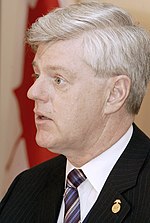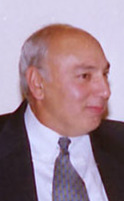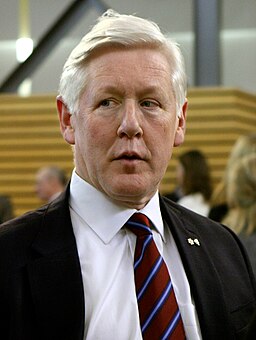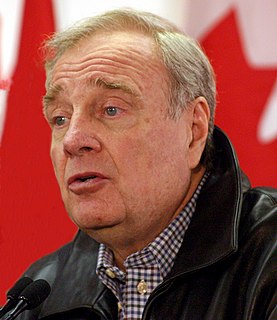| |||||||||||||
| |||||||||||||
| |||||||||||||
| Date | November 14, 2003 |
|---|---|
| Convention | Air Canada Centre, Toronto, Ontario |
| Resigning leader | Jean Chrétien |
| Won by | Paul Martin |
| Ballots | 1 |
| Candidates | 2 |
| Entrance Fee | $75,000 |
| Spending limit | $4 million |
The 2003 Liberal Party of Canada leadership election ended on November 14, 2003, electing former Finance Minister Paul Martin as the party's new leader, replacing outgoing Prime Minister Jean Chrétien.
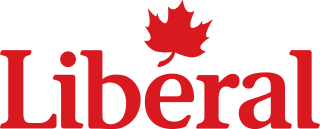
The Liberal Party of Canada is the oldest and longest-serving governing political party in Canada. The Liberals form the current government, elected in 2015. The party has dominated federal politics for much of Canada's history, holding power for almost 69 years in the 20th century—more than any other party in a developed country—and as a result, it is sometimes referred to as Canada's "natural governing party".
In Canadian politics, a leadership convention is held by a political party when the party needs to choose a leader due to a vacancy or a challenge to the incumbent leader.

The Minister of Finance is the Minister of the Crown in the Canadian Cabinet who is responsible each year for presenting the federal government's budget. It is one of the most important positions in the Cabinet.
Contents
- Candidates
- Sheila Copps
- Paul Martin
- Withdrawn candidates
- Declined to run
- Results
- Timeline
- 2002
- 2003
- References
- External links
Stakes for the race were high as the winner would go on to become Prime Minister, and the winner would take a party that was high in the polls without a significant challenger.

The Prime Minister of Canada is the primary minister of the Crown, chairman of the Cabinet, and Canada's head of government. The current, and 23rd, Prime Minister of Canada is the Liberal Party's Justin Trudeau, following the 2015 Canadian federal election. Canadian prime ministers are styled as The Right Honourable, a privilege maintained for life.
Paul Martin spent the entire race as the front runner, as his supporters had secured a lock on the party executives of the federal and most provincial sections of the party. Because of Martin's apparent strength, several prominent candidates, such as Allan Rock, and Brian Tobin, did not go beyond the formative stages.
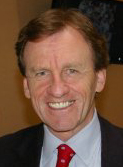
Allan Michael Rock, is a Canadian lawyer, former politician, diplomat and university administrator. He was Canada's ambassador to the United Nations (2004–2006) and had previously served in the Cabinet of Jean Chrétien, most notably as Justice Minister (1993–1997) and Health Minister (1997–2002).

Brian Vincent Tobin, is a Canadian businessman and former politician. Tobin served as the sixth Premier of Newfoundland from 1996 to 2000. Tobin was also a prominent Member of Parliament and served as a Cabinet Minister in Jean Chrétien's Liberal government.
Martin's sole serious challengers were John Manley and Sheila Copps, the former of whom withdrew before delegate selection began. Martin easily captured the leadership with 93.8% of the delegates.

John Paul Manley is a Canadian lawyer, businessman, and politician. He served as Liberal Member of Parliament for Ottawa South from 1988 to 2004, and was deputy prime minister between 2002 and 2003. From January 2010 until October 2018 he was President and CEO of the Business Council of Canada.
Sheila Maureen Copps, is a former Canadian politician who also served as deputy prime minister of Canada from November 4, 1993, to April 30, 1996, and June 19, 1996, to June 11, 1997. Her father, Victor Copps was once mayor of Hamilton, Ontario.
The party would be beset by significant infighting afterwards, as he and his supporters moved to remove Chrétien supporters from cabinet and even from Parliament. Martin's initial tactics to secure the leadership were generally seen, in retrospect, as weakening his eventual tenure as prime minister. [1]
The period between Paul Martin's assumption of the leadership of the Liberal Party of Canada and the announcement of the 2004 federal election which saw a considerable amount of infighting within the party. The divisions in the Liberal Party, the party's embroilment in the Sponsorship Scandal, and a united Conservative opposition, all combined to end 12 continuous years of Liberal rule.


